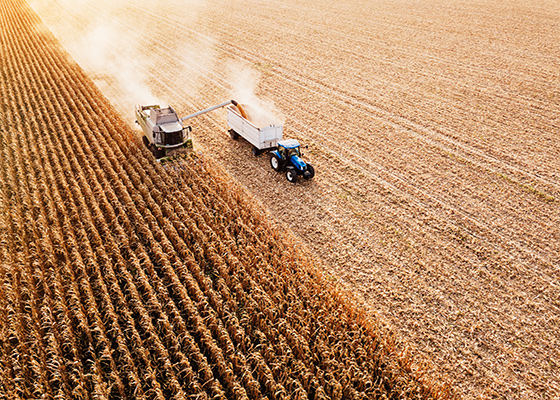Have we been here before?
I’d like to pose a question. Yogi Berra, famous New York Yankees catcher, is credited with saying “It’s like déjà vu all over again”. He had dozens and dozens of sayings that were funny but provided some meaningful life lessons at the same time. So, to my question. Are farmers currently in a déjà vu all over again scenario?
Let’s reflect back to the 1970’s and to some of the things that were happening at the time in the farm economy:
- At the outset of the decade, grain prices were low to the point that breaking even was almost not possible to where they increased to previously unheard of levels. This happened in a span of just a couple of years.
- The outcomes included:
- Input costs increased, albeit with some lag to increasing grain prices.
- Difficulty in buying certain new pieces of machinery. It often meant having to place an order and wait a year for delivery and accept the price increases in the meantime. Good used equipment was equally difficult to find, and prices were high.
- Land rose in value and became difficult to find, even in rental situations, to where it could be challenging to find land to farm, in certain areas.
- In Manitoba, farmland increased 4.5% in value per year on average from 1965 to 1968. However, it actually decreased in value 2.6% per year from 1968 to 1971.
- In the ten years after 1971, farmland rose in value 19.1% per year on average.
The overall Canadian economy was stagnant through the 1970’s but prices and inflation rose alarmingly. Inflation became a monster. 2.7% in 1971 but rising to 11.0% in 1974 and peaking at 12.4% in 1981. Canada created an Anti-Inflation Board in 1975 to deal with it, while unemployment rose to nearly 7%.
What happened next is something no farmers would want to experience again, being interest rates of more than 20% at their peak.
Now, let’s take a look at our current farm situation:
- Farmland values have continued to increase. The recent percentage increases are less than the averages in the 10-year period referenced in the 1970’s but the dollar per acre value increases are greater. I understand that an adjustment for inflation should be factored into the discussion, which I have not done. The point being, though, is that demand for land is similar to the 1970’s, driving prices up and making it difficult to acquire.
- Certain pieces of machinery are becoming difficult to obtain and, in some situations, a farmer would need to wait for up to a year for delivery on a new item. Good used equipment is selling well.
- Grain prices have exploded, causing both optimism and concern at the same time with the optimism that they will remain strong through the 2021 season. The concern pertains to the uncertainty of what future prices will look like coupled with the impact of what a decline in prices could do in the current high input / high capital cost situation.
- Interest rates are at near record low levels and have been for a while, contributing to the increase in land values. Great if you own land. Not so great if you want to buy land.
The Canadian government had not had to deal with extended double digit inflation rates, prior to the 1970’s, since the early 1900’s. An outcome of the 1970’s inflation rates was the increase in interest rates. Government learned from that experience and since that time, in simple terms, has been able to keep inflation in check in part by managing interest rates.
Given the comparisons on the farm economies from the 1970’s and more recently as stated above, what event could trigger a similar economic impact, that government has not experienced before (like run-away inflation), and wreak havoc on the farm economy?
An answer could be Covid and the post-Covid economy. Many consumer items are already difficult to obtain with year-long wait times in some instances. Prices are rising. There has been great economic hardship within the Canadian population. At the same time, a significant percentage of the population has had their spending habits curtailed. There is pent up demand that could very well be unleashed post-Covid, coupled with consumers’ desire to return to some form of normalcy.
I don’t profess to be an economist but it seems to me that government would want to keep interest rates low (or lower) for a period of time so people can get back to work. Interest rates increases are negative to employment. However, if the economy starts to overheat, one tactic the government can use to control inflation is rising interest rates.
So, I pose the question. Are farmers in a déjà vu all over again situation?
If you would like to speak to one of our consultants about this topic contact us.



